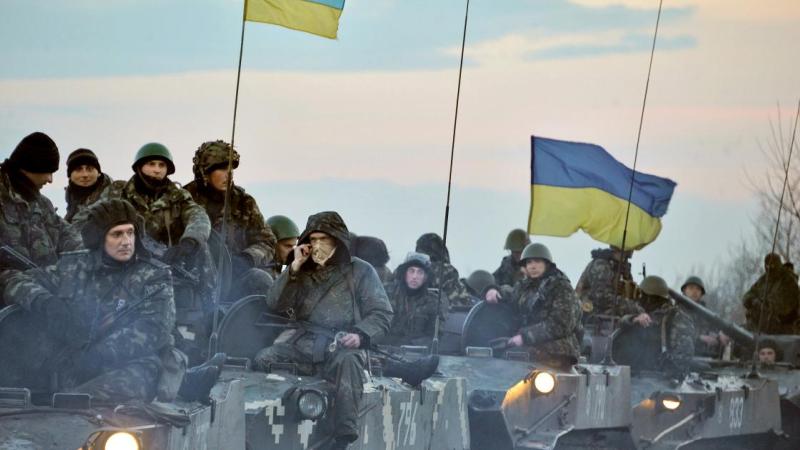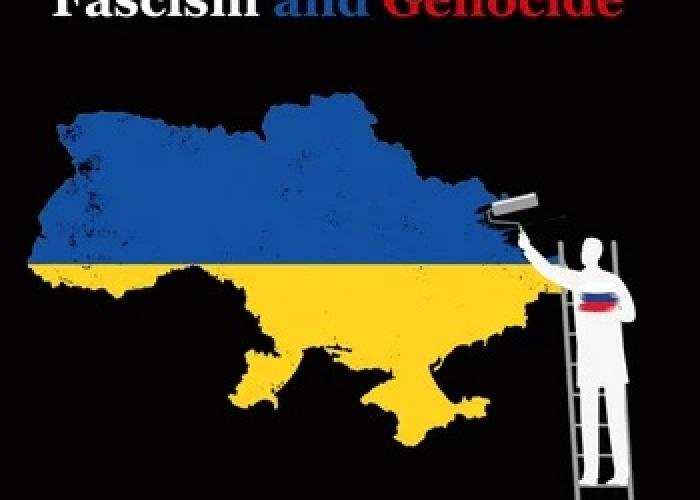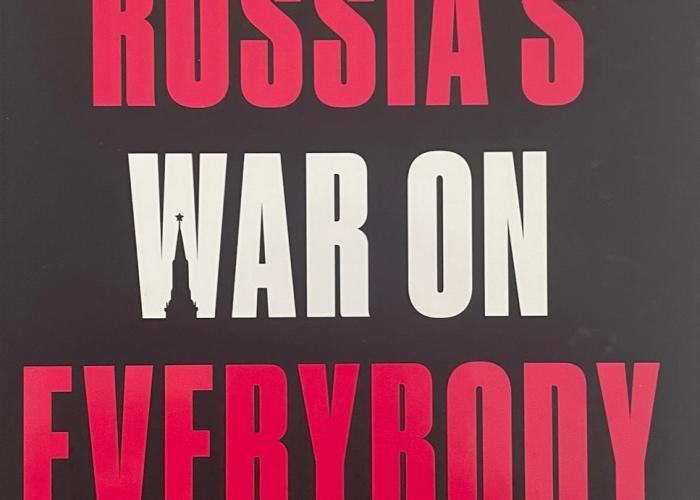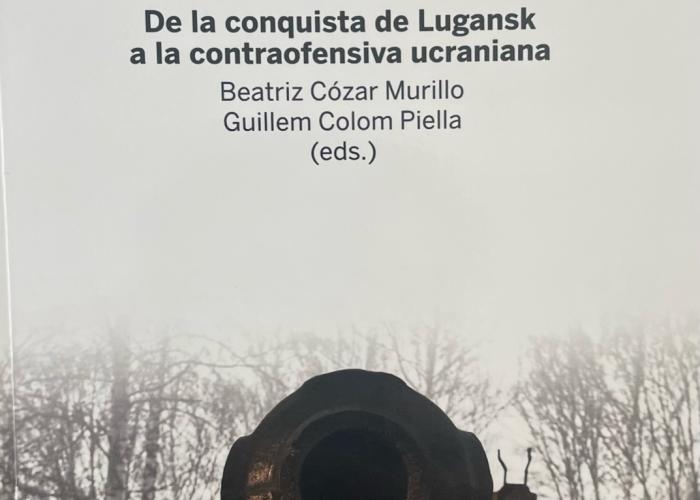The Russian invasion of Ukraine was widely condemned internationally. The United Nations General Assembly adopted a resolution which condemned it and demanded a full withdrawal. The International Court of Justice ordered Russia to suspend military operations, and the Council of Europe expelled Russia. Many countries imposed new sanctions, which have led to economic consequences for Russia and the world economy. Various countries gave humanitarian and military aid to Ukraine. Protests occurred around the world; those in Russia have been met with mass arrests and increased media censorship, including banning the terms "war" and "invasion". Some companies withdrew their products and services from sale in Russia and Belarus.
The invasion of Ukraine was appraised by many international jurists as a violation of the UN Charter and constituted a crime of aggression according to international criminal law, raising the possibility that the crime of aggression could be prosecuted under universal jurisdiction. The invasion also violated the Rome Statute, which prohibits "the invasion or attack by the armed forces of a State of the territory of another State, or any military occupation, however temporary, resulting from such invasion or attack, or any annexation by the use of force of the territory of another State or part thereof". Ukraine had not ratified the Rome Statute and Russia withdrew its signature from it in 2016.
Sources of international law
Case-law
- [International Court of Justice] Allegations of Genocide under the Convention on the Prevention and Punishment of the Crime of Genocide (Ukraine v. Russian Federation)
This Application concerns a dispute between Ukraine and the Russian Federation relating to the interpretation, application and fulfilment of the 1948 Convention on the Prevention and Punishment of the Crime of Genocide (the “Genocide Convention”). As Ukraine further explains, the Russian Federation has falsely claimed that acts of genocide have occurred in the Luhansk and Donetsk oblasts of Ukraine, and on that basis recognized the so-called “Donetsk People’s Republic” and “Luhansk People’s Republic,” and then declared and implemented a “special military operation” against Ukraine with the express purpose of preventing and punishing purported acts of genocide that have no basis in fact. On the basis of this allegation, Russia is now engaged in a military invasion of Ukraine involving grave and widespread violations of the human rights of the Ukrainian people. Ukraine emphatically denies that any such genocide has occurred and brings this Application to establish that Russia has no lawful basis to take action in and against Ukraine for the purpose of preventing and punishing any purported genocide.
ICJ documents; PPL keyword: Allegations of Genocide under the Convention on the Prevention and Punishment of the Crime of Genocide (Ukraine v. Russian Federation)
- [International Court of Justice] Application of the International Convention for the Suppression of the Financing of Terrorism and of the International Convention on the Elimination of All Forms of Racial Discrimination (Ukraine v. Russian Federation)
On January 16th, 2017, Ukraine filed a claim with the International Court of Justice requesting the court to initiate proceedings against Russia. Ukraine is accusing Russia of violating the Convention on the suppression of financing terrorism, and the International convention on elimination on all forms of racial discrimination. Ukraine wants not just for the court to order Russia to stop financing terrorists or to stop violating the rights of Crimean Tatars, but also the highest judicial authority within the UN system to recognize that Russia is financing the terrorist in eastern Ukraine, and indeed is violating Human rights of the Crimean Tatars in Crimea.
ICJ documents; PPL keyword: Application of the International Convention for the Suppression of the Financing of Terrorism and of the International Convention on the Elimination of All Forms of Racial Discrimination (Ukraine v. Russian Federation)
- [International Tribunal for the Law of the Sea] Case concerning the detention of three Ukrainian naval vessels (Ukraine v. Russian Federation), Provisional Measures
By its Notification and Statement of Claim dated 31 March 2019, Ukraine instituted arbitral proceedings under Annex VII to the Convention against the Russian Federation in a dispute concerning “the immunity of three Ukrainian naval vessels and the twenty-four servicemen on board”. Pending the constitution of the arbitral tribunal and after the expiry of the two-week time limit provided for by article 290, paragraph 5, of the Convention, Ukraine, on 16 April 2019, submitted to the Tribunal a request for the prescription of provisional measures in respect of the dispute. The case was entered in the Tribunal’s list of cases as Case No. 26. By note verbale dated 30 April 2019, the Russian Federation informed the Tribunal “of its decision not to participate in the hearing on provisional measures in the case instituted by Ukraine”. By an Order dated 2 May 2019, the President fixed 10 May 2019 as the date for the hearing. By note verbale dated 7 May 2019, the Russian Federation transmitted a memorandum regarding its position on the circumstances of the case. Prior to the opening of the hearing, the Tribunal held initial deliberations on 9 May 2019. Oral statements were presented at a public sitting held on 10 May 2019. In accordance with article 75, paragraph 2, of the Rules, the Agent of Ukraine presented the final submissions at the hearing on 10 May 2019. The Tribunal delivered its Order on 25 May 2019. Ukraine submitted its initial report on Compliance with the Provisional Measures Prescribed on 25 June 2019 and a supplementary report on 26 June 2019. The Russian Federation submitted a report on 25 June 2019. Subsequently, Ukraine submitted communications concerning the case on 13 August 2019, 18 September 2019 and 29 November 2019, whereas the Russian Federation submitted notes verbales concerning the case dated 16 September 2019 and 22 November 2019.
ITLOS documents; PPL keyword: Case concerning the detention of three Ukrainian naval vessels (Ukraine v. Russian Federation), Provisional Measures
UN Declarations and Resolutions
The resolutions and decisions of the United Nations General Assembly and Security Council may provide valuable information on the Russo-Ukrainian War.
→ Official Document System Search. ODS is the UN's Official Document System. You can search for UN declarations, resolutions and other documents by keywords, then narrow your search.
→ Start Your Research: (7) Resolutions and Decisions of International Organizations.
Reference works
- Asada, M. and D. Tamada (eds.), The War in Ukraine and International Law, Singapore, Springer, 2024.
- Czapliński, W., S. Dębski, R. Tarnogórski, K. Wierczyńska (eds), The Case of Crimea's Annexation under International Law, First Edition, Warsaw, SCHOLAR Publishing House, 2017.
- D’Anieri, P.J., Ukraine and Russia: From Civilized Divorce to Uncivil War, Second edition, Cambridge, Cambridge University Press, 2023.
- Gornig, C., Der Ukraine-Konflikt aus völkerrechtlicher Sicht, Berlin, Duncker & Humblot, 2020.
- Grant, T.D., Aggression against Ukraine: Territory, Responsibility and International Law, New York, Palgrave Macmillan, 2015.
- Singh, D., The Tripartite Realist War: Analysing Russia’s Invasion of Ukraine, Cham, Palgrave Macmillan, 2023.
Selected books and articles
- Abely, C., The Russia Sanctions: The Economic Response to Russia’s Invasion of Ukraine, Cambridge, Cambridge University Press, 2024.
- Ackerman, G. et S. Courtois (dir.), Le livre noir de Vladimir Poutine, Paris, Robert Laffont; Perrin, 2022.
- Alcaro, R. (ed.), West-Russia Relations in Lights of the Ukraine Crisis, Roma, Edizioni Nuova Cultura, 2015.
- Anderson/Ellis (eds), Resurgent Russia: An Operational Approach to Deterrence: a U.S. Army War College Integrated Research Project in Support of: U.S. European Command and U.S. Army Europe, New York, Skyhorse Publishing, 2017.
- Applebaum, A., Red Famine: Stalin's War on Ukraine, London, Allen Lane, an imprint of Penguin Books, 2017.
- Åslund, A., Ukraine: What Went Wrong and How to Fix It, Washington, Peterson Institute for International Economics, 2015.
- Belton, C., Putin's People: How the KGB took back Russia and then took on the West, New York, Picador, 2020.
- Bermejo García, R., La vuelta de Crimea a la madre-patria: algunas reflexiones a la luz del Derecho Internacional, Valencia, Tirant lo Blanch, 2015.
- Bertelsen, O., Revolution and War in Contemporary Ukraine: The Challenge of Change, Stuttgart, ibidem-Verlag, 2016.
- Bossuyt, F. and P. Van Elsuwege (eds), Principled Pragmatism in Practice: the EU's Policy towards Russia after Crimea, Leiden; Boston, Brill Nijhoff, 2021.
- Caron, J.-F., Putin’s War and the Re-Opening of History, Singapore, Palgrave Macmillan, 2023.
- Chatterjee, C., Russia in World History: A Transnational Approach, London, Bloomsbury Academic, 2022.
- Clément, K., D. Gorbach, H. Perekhoda, C. Samary and Tony Wood, L'invasion de l'Ukraine: histoires, conflits et résistances populaires, Paris, La Dispute, 2022.
- Coyle, J.J., Russia's Border Wars and Frozen Conflicts, Cham, Palgrave Macmillan, 2018.
- Cózar Murillo, B. y G. Colom Piella (eds), La guerra de Ucrania: II, De la conquista de Lugansk a la contraofensiva ucraniana, Madrid, Los Libros de la Catarata, 2023.
- D'Anieri, P.J., Ukraine and Russia: From Civilized Divorce to Uncivil War, Cambridge, Cambridge University Press, 2019.
- Delli Santi, Maurizio. La Guerra in Ucraina E Le Sfide per Il Nuovo Ordine Internazionale : Rappresentazioni Tra Diritto Internazionale E Geopolitica. Prima edizione, Aracne, 2022.
- Fawn, R., Managing Security Threats along the EU's Eastern Flanks, Cham, Palgrave Macmillan, 2020.
- Feldman/Barash (eds), The Former Soviet Union and East Central Europe between Conflict and Reconciliation, Göttingen, Vandenhoeck & Ruprecht, 2019.
- Fishel, E.M., The Moscow Factor: US Policy toward Sovereign Ukraine and the Kremlin, Cambridge, Massachusetts, Harvard University, 2022.
- Flavier, Hugo, and Pierre-François Laval, editors. Ukraine : Réflexions Sur Une Guerre Européenne. Editions A. Pedone, 2024.
- Freedman, L., Ukraine and the Art of Strategy, New York, Oxford University Press, 2019.
- Fritsch, Rüdiger von. Zeitenwende : Putins Krieg Und Die Folgen. 6. vollständig überarbeitete Auflage, Aufbau, 2022.
- Furuya, Shuichi, et al., editors. Global Impact of the Ukraine Conflict: Perspectives from International Law. Springer, 2023.
- Galeotti, M., Putin's Wars: From Chechnya to Ukraine, Oxford, Osprey Publishing, 2022.
- German, T. and E. Karagiannis (eds), The Ukrainian Crisis: The Role of, and Implications for, Sub-State and Non-State Actors, London; New York, Routledge, Taylor & Francis Group, 2017.
- Giles, K., Russia's War on Everybody: And What it Means for You, London, Bloomsbury Academic, 2023.
- Gornig, Gilbert-Hanno, and Alfred Eisfeld, editors. Die Ukraine Zwischen Russland Und Der Europäischen Union. Duncker & Humblot, 2021.
- Griffiths, R., Should the West Engage Putin's Russia?: Pozner and Cohen vs. Applebaum and Kasparov, Toronto, Anansi, 2015.
- Grigas, A., Beyond Crimea: The New Russian Empire, New Haven; London, Yale University Press, 2016.
- Hahn, G.M., Ukraine over the Edge: Russia, the West and the "New Cold War", Jefferson, McFarland & Company, Inc., Publishers, 2018.
- Hunter, R., "The Ukraine Crisis: Why and What Now?" Survival, Vol. 64 (2022), No 1, pp. 7-28.
- Kagarlitsky, B., R. Desai and A. Freeman (eds), Russia, Ukraine and Contemporary Imperialism, Abingdon; New York, Routledge, 2018.
- Kammel, A.H. and B. Zyla (eds), Peacebuilding at Home: NATO and its 'New' Member States after Crimea, Baden-Baden, Nomos, 2018.
- Kanet, R.E., The Russian Challenge to the European Security Environment, Cham, Palgrave Macmillan, 2017.
- Kent, N., Crimea: A History, London, Hurst & Company, 2016.
- Kimmage, M., Collisions: The Origins of the War in Ukraine and the New Global Instability, Oxford, Oxford University Press, 2024.
- Krone-Schmalz, G., Russland verstehen: der Kampf um die Ukraine und die Arroganz des Westens, München, C.H. Beck, 2015.
- Kuzio, T., Fascism and Genocide: Russia's War against Ukrainians, Stuttgart, ibidem Verlag, 2023.
- Lange, F., Der russische Angriffskrieg gegen die Ukraine und das Völkerrecht, Berlin, De Gruyter, 2023.
- Leist, A. and R. Zimmermann (eds.), After the War? : How the Ukraine War Challenges Political Theories, Berlin, Walter de Gruyter GmbH, 2024.
- Lendman, S., Flashpoint in Ukraine: How the US Drive for Hegemony Risks World War III, Atlanta, Clarity Press, Inc., 2014.
- Lier, K., Die Grenzen des Selbstbestimmungsrechts der Völker am Beispiel der Ukraine-Krise, Hamburg, Verlag Dr Kovac, 2021.
- Lyubashenko, I., Ukraine's Search for Justice in the Shadow of the Donbas Conflict: Strategic Reforms or Crisis Management?, Berlin, Peter Lang, 2020.
- Malyarenko, T. and S. Wolff, The Dynamics of Emerging De-facto States: Eastern Ukraine in the Post-Soviet Space, Abingdon; New York, Routledge, 2019.
- Matlary, J.H. and T. Heier (eds), Ukraine and Beyond: Russia's Strategic Security Challenge to Europe, Cham, Palgrave Macmillan, 2016.
- Matthews, Owen. Overreach: The inside Story of Putin’s War against Ukraine. Mudlark, 2022.
- Marples, D.R. (ed.), The War in Ukraine's Donbas: Origins, Contexts, and the Future, Budapest; Vienna; New York, CEU Press, 2022.
- McFaul, M., From Cold War to Hot Peace: An American Ambassador in Putin's Russia, Boston; New York, Houghton Mifflin Harcourt, 2018.
- Menon, R. and E. Rumer, Conflict in Ukraine: The Unwinding of the Post-Cold War Order, Cambridge; London, The MIT Press, 2015.
- Naumescu, V. and D. Dungaciu (eds), The European Union's Eastern Neighbourhood Today: Politics, Dynamic, Perspectives, Cambridge Scholars Publishing, 2015.
- Neill, K., Claiming Crimea: A history of Catherine the Great's Southern Empire, New Haven; London, Yale University Press, 2017.
- Petersson, M., The US NATO Debate: From Libya to Ukraine, New York; London, Bloomsbury, 2015.
- Pifer, S., The Eagle and the Trident: U.S.-Ukraine Relations in Turbulent Times, Washington, Brookings Institution Press, 2017.
- Plešakov, K., The Crimean Nexus: Putin's war and the Clash of Civilizations, New Haven, Yale University Press, 2017.
- Plokhy, S., The Frontline: Essays on Ukraine's Past and Present, Cambridge, Massachusetts, Harvard University Press for the Ukrainian Research Institute, 2021.
- Plokhy, S., The Future of the Past: New Perspectives on Ukrainian History, Cambridge, Massachusetts, Harvard Ukrainian Research Institute, 2016.
- Plokhy, S., The Gates of Europe: A History of Ukraine, London, Penguin Books, 2015.
- Portela, C., Pospieszna, P., Skrzypczyńska, J. and Walentek, D., "Consensus against All Odds: Explaining the Persistence of EU Sanctions on Russia", Journal of European integration, Vol. 43 (2021), No. 6, pp. 683-699.
- Radonić, L., The Holocaust/Genocide Template in Eastern Europe, Abingdon; New York, Routledge, 2020.
- Ramani, S., Putin's War on Ukraine: Russia's Campaign for Global Counter-revolution, London; New York, Hurst, 2023.
- Rotaru, V. and M. Troncota (eds), Russia and the Former Soviet Space: Instrumentalizing Security, Legitimizing Intervention, Newcastle upon Tyne, Cambridge Scholars Publishing, 2017.
- Roxburgh, A., The Strongman: Vladimir Putin and the Struggle for Russia, London, I.B. Tauris, Third, Reprinted Edition, 2022.
- Rytövuori-Apunen, H., Power and Conflict in Russia's Borderlands: the Post-Soviet Geopolitics of Dispute Resolution, London, I.B. Tauris, 2020.
- Sakwa, R., Frontline Ukraine: Crisis in the Borderlands, London; New York, I.B. Tauris, 2015.
- Salzman, R.S., Russia, BRICS, and the Disruption of Global Order, Washington, Georgetown University Press, 2019.
- Samokhvalov, V., Russian-European Relations in the Balkans and Black Sea Region: Great Power Identity and the Idea of Europe, Cham, Palgrave Macmillan, 2017.
- Sasse, G., Der Krieg gegen die Ukraine: Hintergründe, Ereignisse, Folgen, München, C.H.Beck, 2022.
- Sayapin, S. and E. Tsybulenko (eds), The Use of Force against Ukraine and International Law: Jus ad Bellum, Jus in Bello, Jus post Bellum, Berlin, Springer, 2018.
- Schulze, P.W. und W. Veit (eds.), Ukraine in the Crosshairs of Geopolitical Power Play, Frankfurt, Campus Verlag, 2020.
- Singh, D., Geopolitics of Ukraine (a Study of Russia's Interests), New Delhi, Research India Press, 2017.
- Thesen, R., Tatort Ukraine: Völkerrechtliche Betrachtungen, Bonn, Book-Today, 2022.
- Thielbörger, Pierre, and Sascha Rolf Lüder, editors. Der Ukraine-Konflikt Als Herausforderung an Das VöLkerrecht, Das Verfassungsrecht Und Das Verwaltungsrecht. Berliner Wissenschafts-Verlag, 2024.
- Toal, G., Near Abroad: Putin, the West, and the Contest over Ukraine and the Caucasus, New York, Oxford University Press, 2017.
- Trenin, D., Should We Fear Russia?, Malden, Polity Press, 2016.
- Trofimov, Y., Our Enemies Will Vanish: The Russian Invasion and Ukraine’s War of Independence, London, Penguin Michael Joseph, 2024.
- Urban, A.L. and C. MacLeod, Zelensky: the Unlikely Ukrainian Hero who Defied Putin and United the World, Washington, D.C., Regnery Publishing, 2022.
- Vicente, A, P. Sinovets and J. Theron (eds.), Russia’s War on Ukraine: The Implications for the Global Nuclear Order, Cham, Springer, 2023.
- Walker, S., The Long Hangover: Putin's New Russia and the Ghosts of the Past, New York, NY, Oxford University Press, 2018.
- Williams, B.G., The Crimean Tatars: From Soviet Genocide to Putin's Conquest, London, C. Hurst & Co. (Publishers) Ltd., 2015.
- Wilson, A., The Ukrainians: Unexpected Nation, New Haven; London, Yale University Press, 2015.
- Wipperfürth, C., Die Ukraine im westlich-russischen Spannungsfeld: die Krise, der Krieg und die Aussichten, Opladen, Verlag Barbara Budrich, 2015.
- Wylegała, A. and M. Głowacka-Grajper, The Burden of the Past: History, Memory and Identity in Contemporary Ukraine, Bloomington, Indiana University Press, 2020.
- Wynnyckyj, M., Ukraine's Maidan, Russia's War: A Chronicle and Analysis of the Revolution of Dignity, Stuttgart, ibidem-Verlag, 2019.
- Yekelchyk, S., The Conflict in Ukraine: What Everybody Needs to Know, New York, Oxford University Press, 2015.
- Yekelchyk, S., Ukraine: What Everyone Needs to Know, Second Edition, New York, Oxford University Press, 2020.
- Zygarʹ, Mikhail. War and Punishment: The Story of Russian Oppression and Ukrainian Resistance. Weidenfeld & Nicolson, 2023.



